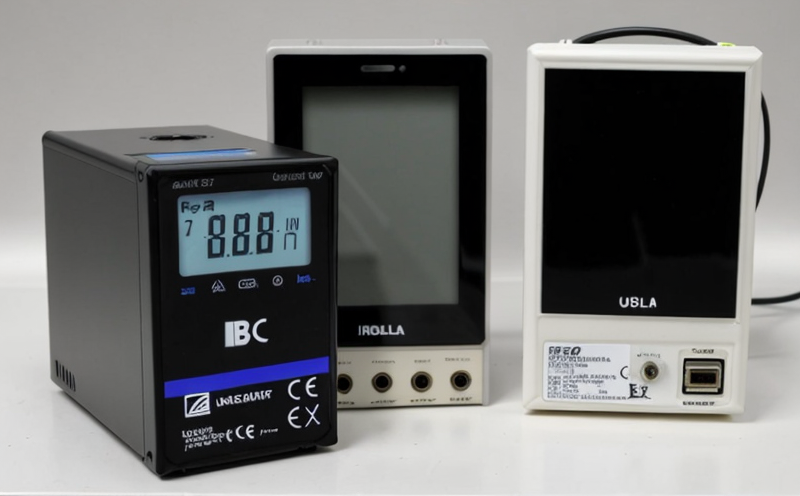IEC 63018 Consumer Electronics Rechargeable Lithium Battery Testing
The IEC 63018 standard is a cornerstone in the evaluation of rechargeable lithium batteries used in consumer electronics. These batteries are critical components that power everything from smartphones and laptops to digital cameras and portable speakers. The standard ensures that these batteries meet stringent safety, performance, and reliability criteria. This service focuses on the comprehensive testing protocols outlined by IEC 63018, which is essential for manufacturers, quality managers, compliance officers, and R&D engineers ensuring they meet international standards.
The scope of this service includes a wide range of tests that are designed to assess the safety, performance, and reliability of rechargeable lithium batteries. These tests cover aspects such as charge retention, cycle life, low-temperature discharge, high-temperature storage, and more. The testing process is rigorous and involves multiple stages, each aimed at identifying potential weaknesses or hazards in the battery design.
One of the key components of this service is the preparation of test specimens. This involves ensuring that the batteries are properly conditioned to simulate real-world usage conditions. For instance, batteries used in cold climates need to be tested under low-temperature conditions, while those designed for high-performance computing may require more rigorous cycle life testing.
The instrumentation used in this service is state-of-the-art and includes advanced measurement devices such as charge/discharge testers, temperature-controlled chambers, and high-voltage testing equipment. The results of these tests are meticulously recorded and analyzed to ensure that the batteries meet all specified criteria.
Upon completion of the testing process, a detailed report is generated. This report provides comprehensive insights into the performance, safety, and reliability of the tested batteries. It includes data on charge retention rates, cycle life, and any other relevant metrics. The report also highlights any areas where improvements can be made to enhance the battery's performance.
The importance of this service cannot be overstated. In an era where consumer electronics are becoming more powerful and complex, ensuring that their batteries meet international standards is crucial for brand reputation and consumer trust. By adhering to IEC 63018, manufacturers can ensure that their products are safe, reliable, and performant.
Compliance with this standard also opens doors to global markets, as many countries have regulations that require adherence to these international standards. This service is not only beneficial for established brands but also for startups looking to enter the market with a product that meets global benchmarks.
Why It Matters
The safety and reliability of rechargeable lithium batteries are paramount in consumer electronics. A single faulty battery can lead to serious accidents, including fires and explosions. By adhering to IEC 63018, manufacturers ensure that their products meet the highest safety standards, protecting consumers from potential hazards.
Performance is another critical aspect of this service. Consumers expect their devices to last as long as possible between charges. By testing batteries according to IEC 63018, manufacturers can ensure that their products have optimal charge retention and cycle life. This enhances customer satisfaction and ensures the longevity of the product.
Reliability is also a key factor in this service. A battery that fails prematurely or under extreme conditions can lead to significant downtime for consumers. By testing batteries according to IEC 63018, manufacturers ensure that their products are reliable under all specified conditions, enhancing user confidence and satisfaction.
Industry Applications
| Application | Description |
|---|---|
| Smartphones | Testing for charge retention, cycle life, and low-temperature performance. |
| Laptops | Ensuring high-performance computing capabilities with reliable battery operation. |
| Digital Cameras | Evaluating the impact of temperature variations on battery performance. |
| Portable Speakers | Assessing durability and reliability in rugged environments. |
- Smartphones: Testing for charge retention, cycle life, and low-temperature performance.
- Laptops: Ensuring high-performance computing capabilities with reliable battery operation.
- Digital Cameras: Evaluating the impact of temperature variations on battery performance.
- Portable Speakers: Assessing durability and reliability in rugged environments.
The IEC 63018 standard is widely recognized for its comprehensive approach to testing rechargeable lithium batteries. It ensures that products are safe, reliable, and performant, which is crucial for the success of consumer electronics brands.
International Acceptance and Recognition
The IEC 63018 standard is recognized globally for its stringent testing protocols. Countries such as the United States, Europe, China, Japan, and South Korea have regulations that mandate compliance with this standard. This service ensures that manufacturers are prepared to meet these international standards, thereby opening up access to global markets.
Compliance with IEC 63018 is not only about meeting regulatory requirements but also about enhancing brand reputation and consumer trust. By adhering to this standard, manufacturers can ensure that their products are the best in terms of safety, performance, and reliability. This can lead to increased market share and customer loyalty.
The international recognition of IEC 63018 is a testament to its effectiveness as a benchmark for quality and safety. It ensures that products from different manufacturers meet consistent standards worldwide, promoting fair competition and consumer protection.





